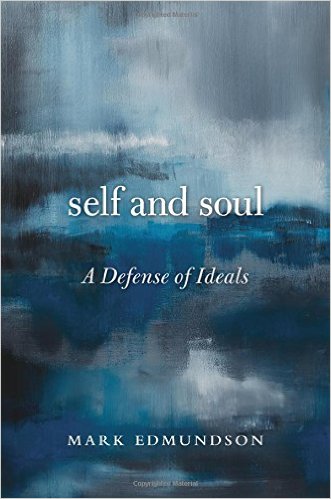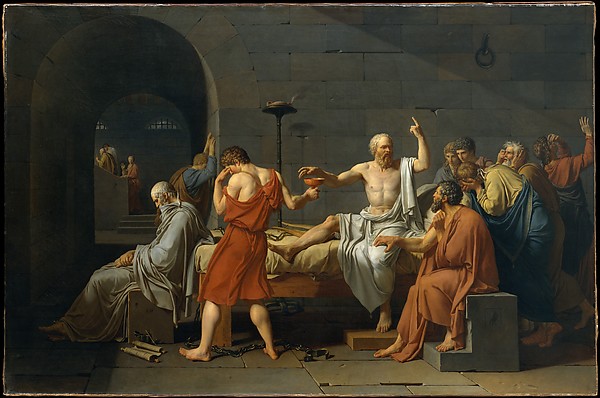Book Review: Self and Soul: a Defense of Ideals
Several weeks ago, I heard a remarkable conversation with author and academic, Mark Edmundson, about his new book Self and Soul: a Defense of Ideals, on the always engaging and entertaining Art of Manliness podcast. During this past weekend’s snowstorm here on the Eastern seaboard, I found myself sitting in my parlor and enjoying a day with no particular demands, errands, or responsibilities by attending to my first and greatest passion: reading.
In this case, I read Edmundson’s Self and Soul, largely ignoring the majestic natural beauty just beyond my window. When I’m given a choice between print and the world, print more often than not wins.

Edmundson’s book presents the simple, yet disturbing and challenging premise that the Western world—especially contemporary America—has become a land and a culture devoid of ideals and enraptured with individual pursuits and pleasures. At its best, the self is embodied by middle-class staidness—a mortgage, a quiet career, and a summer vacation. At its worst, the self devolves into an insatiable appetite for wealth, status, celebrity, and possessions. Unfortunately, American society seems to have fallen to this low level. Open a magazine or a newspaper. Turn on the television. Skim a few websites. Still need to be convinced?
The soul strives for great ideals and virtues, for pulling away from the excesses and trappings of the world and for presenting mankind with a better, simpler, and nobler choice of life. The soul demands much, but it can transform a man or a woman into a being truly worth emulating.
Edmundson identifies three central ideals or virtues: courage, compassion, and wisdom. Those three attributes are best personified in Achilles and Hector, two warriors on opposite sides in the Trojan War; Jesus Christ; and Socrates, arguably the most influential thinker in Western civilization.

The Death of Socrates, Jacques Louis David, 1787 (Courtesy of the Metropolitan Museum of Art, New York).
All these men (a quick theological detail: Jesus was human but not mortal) demonstrated that the life of the soul was far from easy, painless, and immediately rewarding. In fact, all these men died in the embrace of their ideals. Hector was cut down by Achilles, who himself perished shortly thereafter on the battlefield. Socrates was ordered to commit suicide, effectively for questioning the tenents of Athenian society. Jesus Christ challenged every social, economic, and political order devised by the religious and secular powers of Judea and Rome. He never could have been allowed to live.

Parable of the Good Samaritan, Jan Wijnants, 1670 (Courtesy of the State Hermitage Museum, St. Petersburg, Russia).
Readers are presented with a difficult challenge: examine your own life. Are you striving for a life of the soul or are you content with an existence centered on the self? In our modern, materialistic, and cynical world, how might one cut a path to the soul? In this aspect, Edmundson offered no concrete suggestions to developing answers to these questions. Maybe that would require a different type of book. Maybe diagnosing the sickness is important enough.
If you have a spare hour, listen to the podcast. Better yet, visit your local library or independent bookstore and pick up a copy of Self and Soul. Maybe you’ll be inspired to recenter your life on the soul and less on the self.